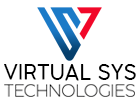What is “Vibe Coding”? How Natural-Language First Development is Changing Software Engineering

VIBE CODING
Not too long ago, writing code meant staring at lines of syntax, balancing semicolons, and debugging through endless trial and error. But today, something fascinating is happening in the software world—something Andrej Karpathy, former Tesla AI Director, recently dubbed “Vibe Coding.”
In one of his viral tweets, Karpathy wrote:
And honestly—that’s the world we’re stepping into.
So, what exactly is “Vibe Coding”?
At its core, vibe coding is natural-language-first software development. Instead of meticulously writing functions, developers simply talk to the AI, describing what they want in plain English:
- “Add a login button in the top-right corner.”
- “Make the background slightly darker.”
- “Integrate a payment gateway with Apple Pay.”
The AI then generates and adjusts the code, sometimes faster than a human could even search Stack Overflow. In short—you’re no longer coding at the computer, you’re coding with the computer.
This shift is huge. It’s like moving from writing assembly code line by line to dragging and dropping in no-code platforms—but this time, with infinite flexibility because AI understands context, patterns, and best practices.
Why this matters for the future of software engineering
For decades, software engineering required years of training, mastering programming languages, frameworks, and debugging strategies. That’s still important—but with vibe coding, the barrier to entry drops dramatically.
Faster prototyping: Got an idea for a weekend app? Just talk it out and let the AI scaffold the project.
- Democratization of coding: Non-developers can suddenly build apps by giving instructions.
- Focus on creativity over syntax: Developers can now spend more time on what they want to build, not on how to implement it.
- AI as a coding partner, not just a tool: It’s less about replacing coders and more about augmenting their superpowers.
Of course, vibe coding has its quirks. As Karpathy admitted, you sometimes end up with bloated code, or bugs that require you to “vibe your way” around them. But the direction is clear: software development is becoming conversational.
Where Virtual Sys Technologies fits in
At Virtual Sys Technologies, a US-based software development company, we’ve already started weaving natural-language-first development into how we build solutions for clients.
Our philosophy is simple: AI is not a replacement for great engineering—it’s a force multiplier. While “vibe coding” makes rapid iteration and experimentation possible, we combine it with the rigor of experienced developers who ensure scalability, performance, and security.
Imagine being able to brainstorm your app with us in a call, describe features in your own words, and watch as prototypes come to life in days instead of months. That’s the kind of synergy we’re creating—human creativity amplified by AI speed.
Vibe coding is still young, but it signals a profound change in how we think about software. Just like Photoshop turned everyone into a “designer” and Canva took it a step further, vibe coding will make “being a developer” more about problem-solving and vision, not syntax memorization.
In the near future, asking an AI to “make me an eCommerce app with product recommendations and a loyalty program” might be as normal as asking Google Maps for directions. And companies that embrace this shift early—like we are at Virtual Sys Technologies—will be the ones shaping that future. Coding is no longer just typing. It’s about vibing with the machine, expressing intent in natural language, and letting AI handle the grunt work. The future of software engineering won’t just be written—it will be spoken.



